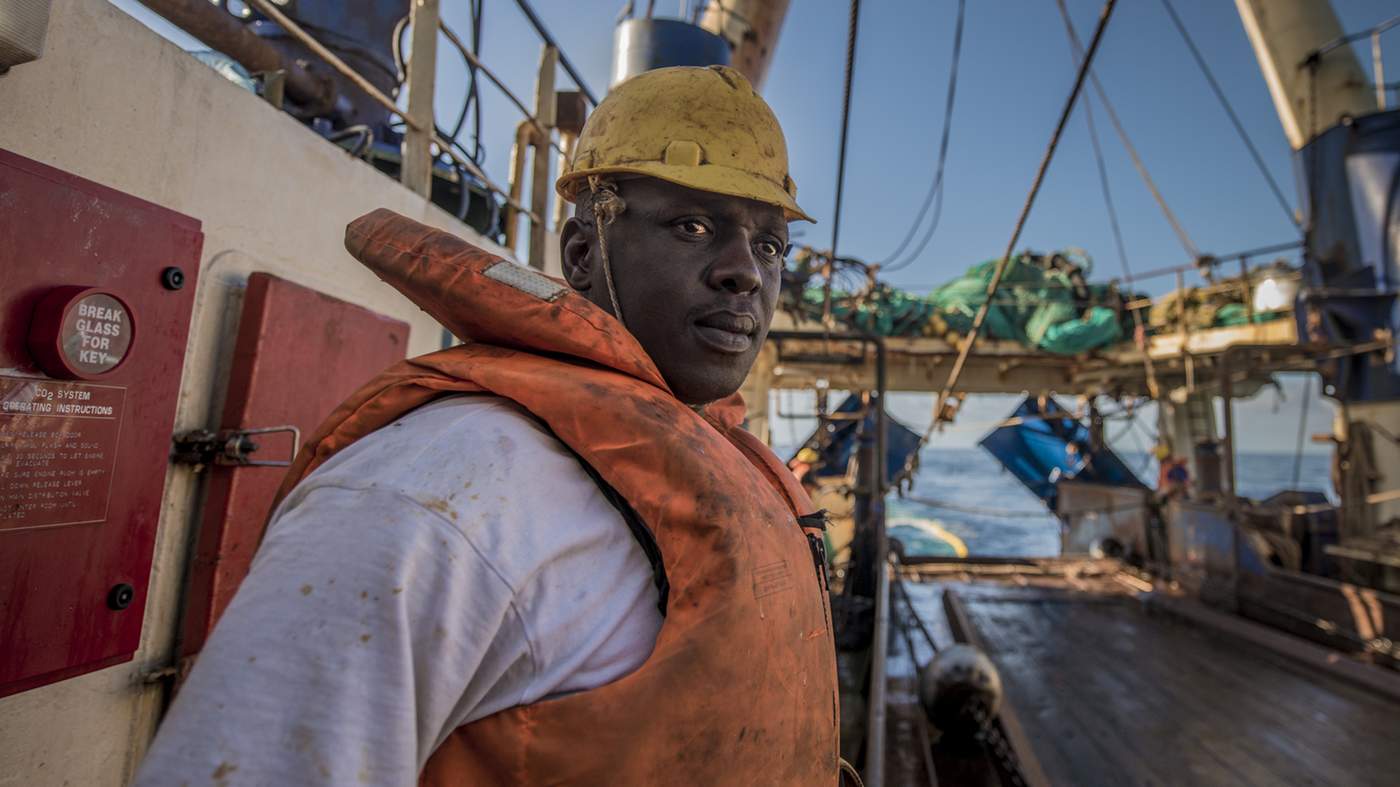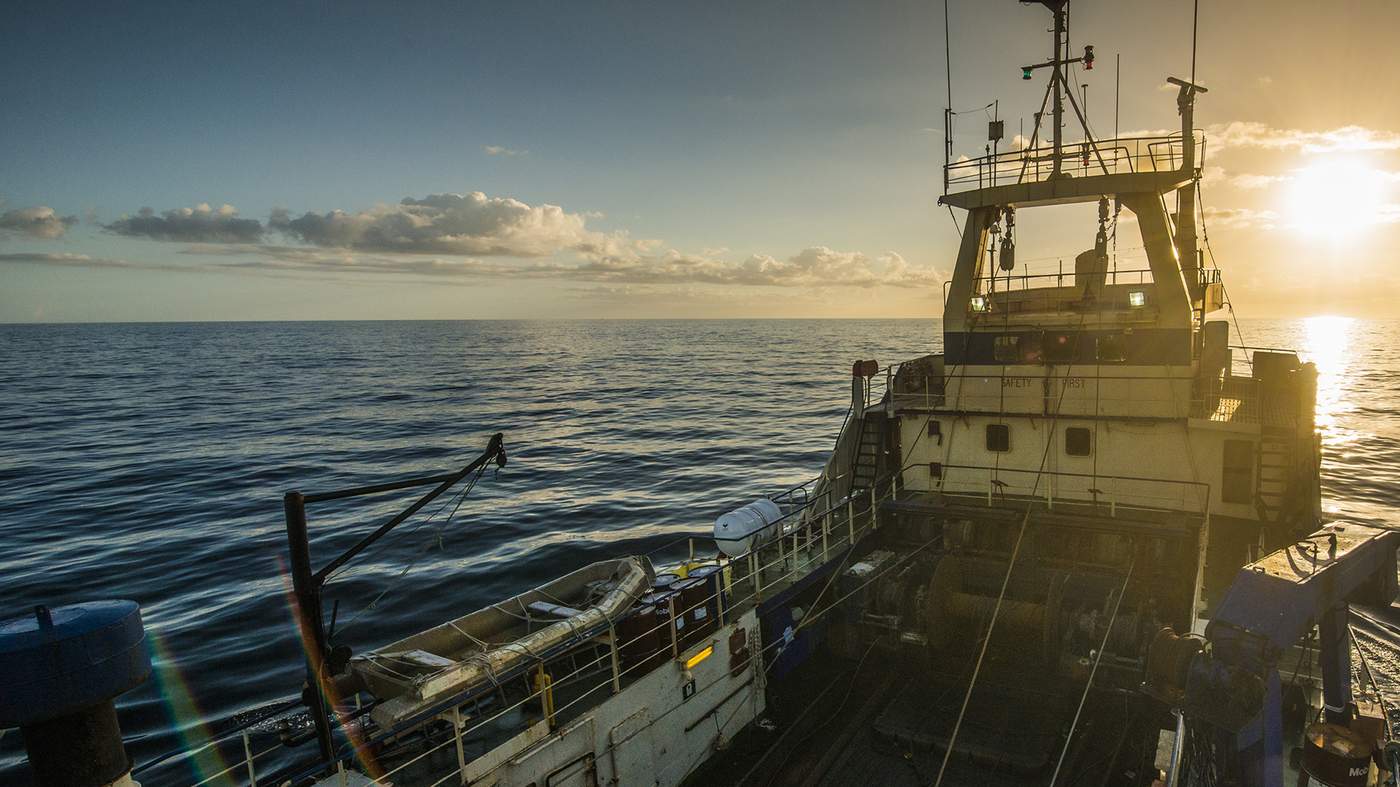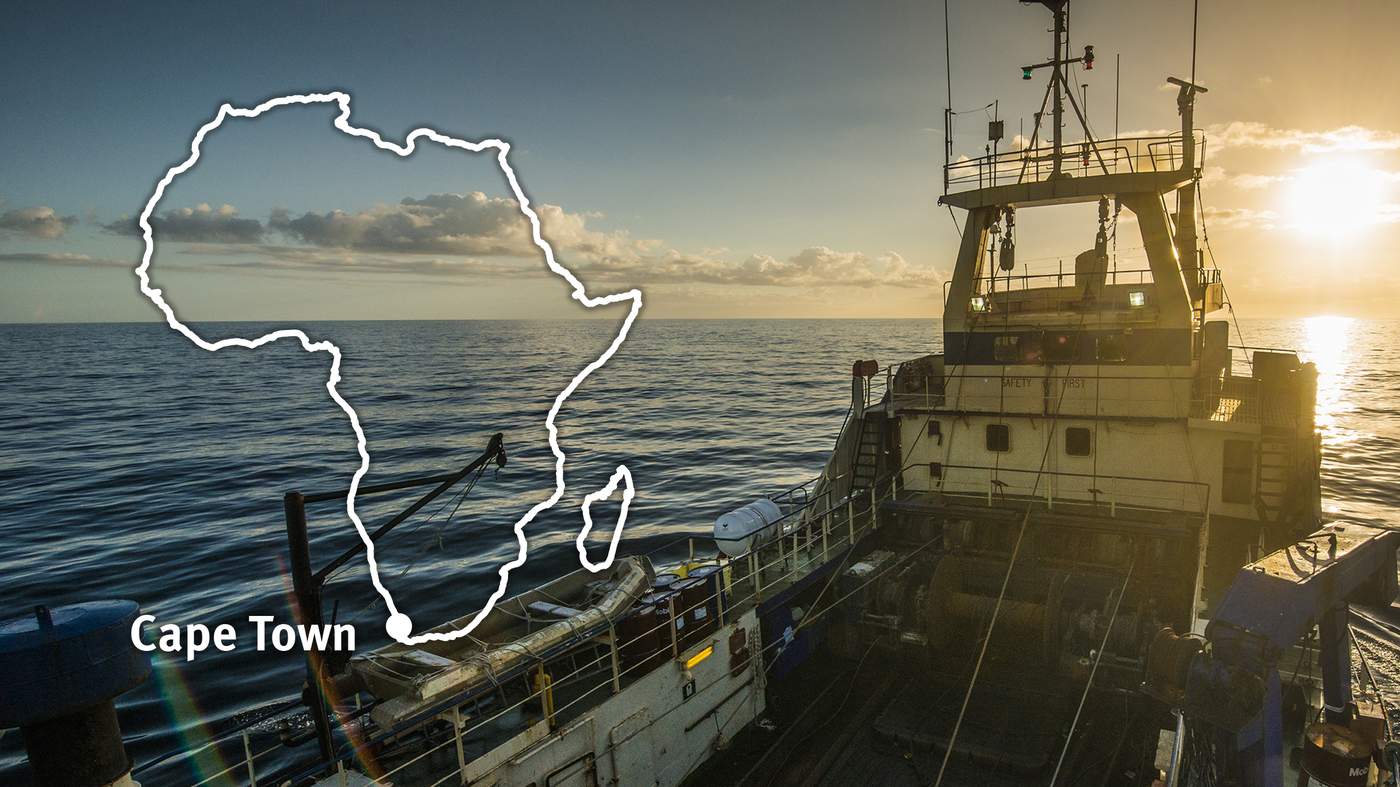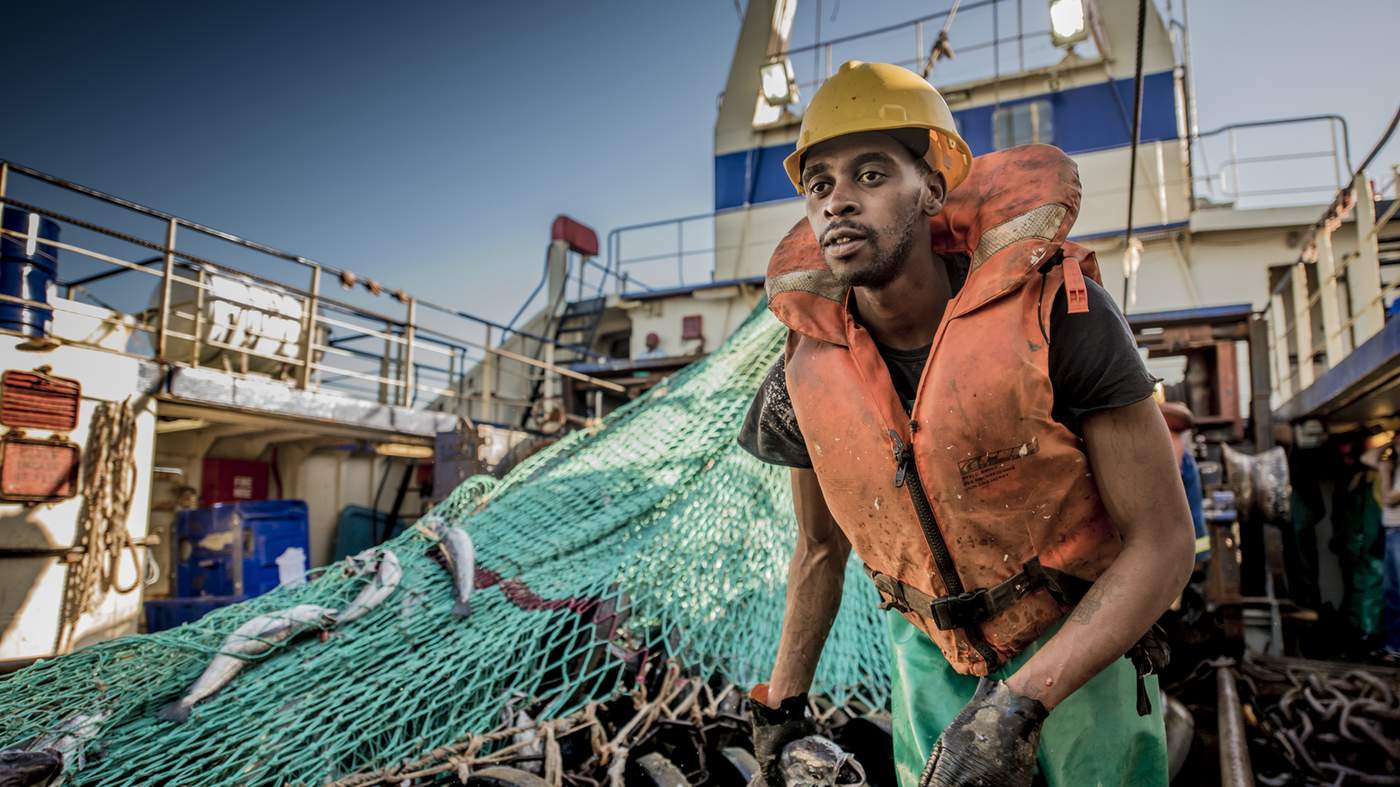Valda Jumat is 40 and the sole breadwinner in her family. She began work for a leading processor of hake and other deep-sea fishes right after leaving school.
Over the years, Valda has come to love the rich South African coastline. Married with three children, she also provides for extended family members who live with her. The family live in Cape Town, a thriving coastal city where the hake fishing industry is a significant employer.
Valda says she wouldn't change her job for anything. Fishing provides income for her family. Remuneration at the hake fishery includes pension/provident funds, medical assistance, regular paid shore leave and annual holiday for all workers.
Valda loves working here and during her long service has seen enormous growth in the industry. None of this would be possible if fishery managers weren’t confident that there are enough fish for the future.
“I provide for my family. If something goes wrong with this fishery, I’ll not be able to provide health care, food etc. for myself and the rest of my family. My continuous employment here is the lifeline to my family’s sustenance.”
South Africa is a fish-loving, fishing-mad country. The country’s fisheries sector is worth around US$300 million a year and directly employs almost 30,000 people in the commercial sphere. 12,000 of these are involved in some way in hake fishing. The hake industry accounts for more than half of the value of South Africa's commercial fisheries.
And yet the rainbow nation (as South Africa is popularly referred to) is still challenged by declining catches and vanishing species. For many of the country’s fishing communities where sustainable practices are not yet implemented, livelihoods could become extinct.
The hake fishery is one of South Africa’s oldest commercial fisheries. Twelve years after it was first certified as sustainable to the Marine Stewardship Council (MSC) Fisheries Standard, it is demonstrating how sustainability can provide long-term economic gains.
It employs over 8,000 men and women and is responsible for export revenue of around US$187 million a year. Recent studies have shown that in becoming sustainable, the fishery has protected some 12,000 jobs and increased access to international markets. Around 64% of hake catch is exported.
Gurshwin Eckhard, Relieving Skipper of the Boronia and Umlobi hake trawl vessels, is head of his household and, like Valda, the sole provider for his family.
Gurshwin says the fishing industry offers great career opportunities. He started work at the fishery as a deck hand some 20 years ago. Having risen through the ranks to Skipper, Gurshwin continues to benefit from a wide-range of skills development programmes offered by the fishery.
Gurshwin knows that sustainable management of fish stocks in the Western Cape is the only way to go: "No fish, no income" he says, “it's as simple as that.”
"We fish in a good way. We use large mesh nets so we don’t catch the baby fish and also reduce the amount of bycatch. We also do not fish outside of historic trawl grounds, ensuring that natural breeding habitats are protected.
"We wish there was a way all fisheries could become sustainable. Other fisheries need to learn from the hake fishery. They need to look after what they have so that it can be passed on to the next generation," he adds.
In the 1970s, the South African coast was fished with no limits. Many termed it "an international free-for-all". This caused a sharp decline in hake stocks in particular. So in 2004, the news that the South African Cape hake fishery had gained MSC certification was welcomed in many quarters.
By maintaining good practice and remaining certified, the fishery has not only protected fish stocks, but secured its hold in foreign markets where MSC labelled seafood is in increasing demand.
For Gurshwin, Valda and all those involved in the South African hake fishery, sustainable fishing goes beyond the MSC ecolabel. It is about ensuring that families' and communities' livelihoods and futures are secure.






